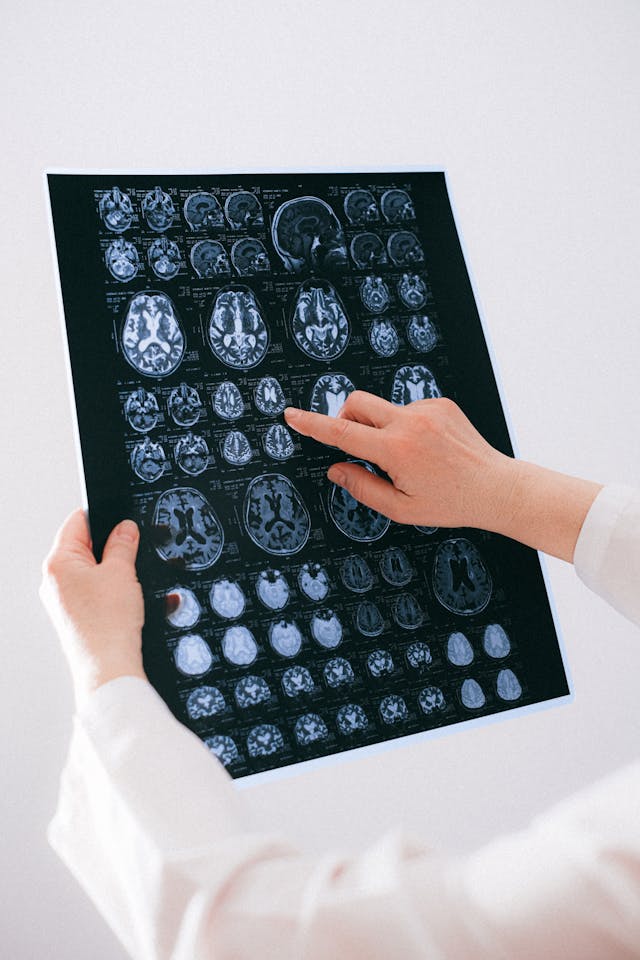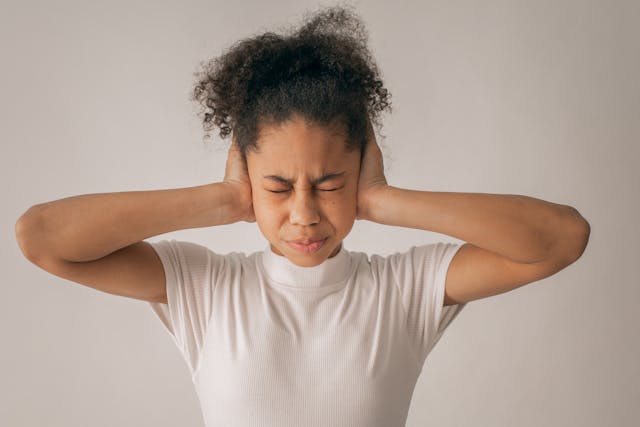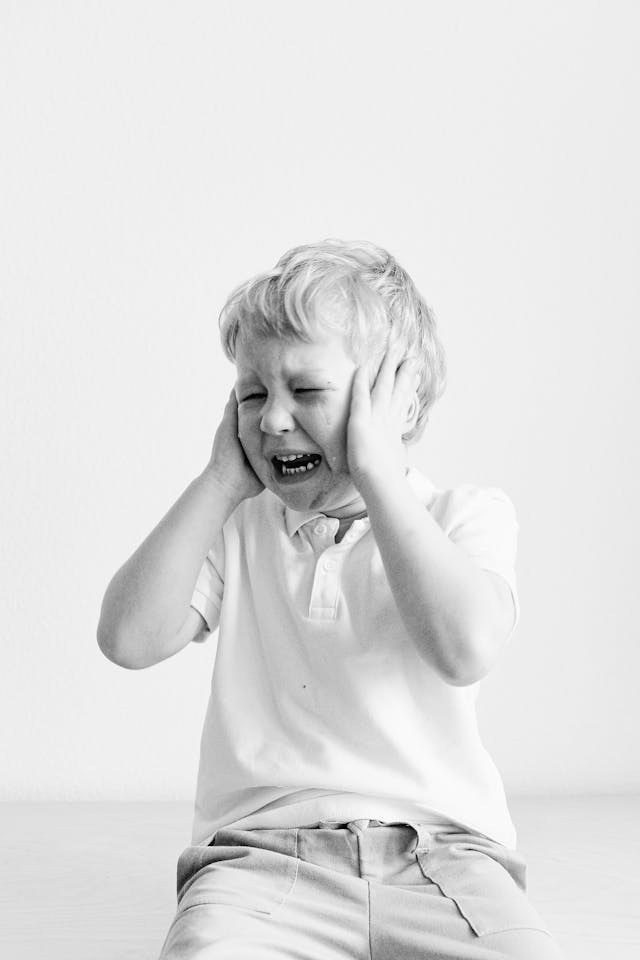 Stephen Geller Katz LCSW-R
Stephen Geller Katz LCSW-R
Misophonia Cognitive Retraining Therapy
 Stephen Geller Katz LCSW-R
Stephen Geller Katz LCSW-RMisophonia Cognitive Retraining Therapy
Misophonia Cognitive Retraining Therapy, as featured on the MTV True Life episode: “I Have Misophonia” premiering Friday, December 16th, 7:00 PM EST. See Clip >
|
|
|
| Moderate to severe anxiety triggered by chewing sounds, including: | ||
|
|
|
You may also be affected by visual stimuli, such as repetitive foot or body movements, fidgeting or movement you observe out of the corners of their eyes. Intense anxiety, rage and avoidant behavior may develop as a result of misophonia.
 * Do you feel your family and friends don’t understand how much you suffer?
* Do you feel your family and friends don’t understand how much you suffer?
* Do you often feel you can just suffer through a social event where there is eating present only to find that you must “escape” before you have a panic attack?
* Do you find that some people are at first understanding and make some efforts not to make the triggering sounds in front of you, but soon forget and constantly have to be reminded, causing you to feel angry, anxious and depressed?
* Are you avoiding social activities that you enjoy because of the misophonia?
* Are you fearful of losing your job and/or is the misophonia effecting your job performance?
You may be a candidate for Misophonia Cognitive Retraining Therapy, or MCRT.
Stephen Geller Katz, LCSW-R, with over 20 years of clinical experience, a New York University graduate, developed Misophonia Cognitive Retraining Therapy and founded Misophonia Cognitive Center™ in response to the growing number of people with Misophonia coming to his private practice from audiologists and ENTs. He discovered that by helping people to retrain and reinterpret the thoughts around their Misophonia, anxiety and depression symptoms began to improve. But even more important so did the Misophonic trigger response.
Metacognitive and third-wave therapies in misophonia new case studies are expanding how clinicians understand and treat this complex sound sensitivity condition. As research evolves beyond traditional behavioral models, newer therapeutic approaches are showing promise in helping individuals manage trigger responses, emotional reactivity, and the psychological distress that often accompanies misophonia. These emerging case studies highlight how addressing thought processes and emotional flexibility—rather than just the sounds themselves—can lead to meaningful improvement.

Third-wave therapies refer to modern cognitive-behavioral approaches that focus less on changing the content of thoughts and more on changing the relationship individuals have with those thoughts. These therapies emphasize acceptance, mindfulness, and metacognitive awareness.
Common third-wave approaches include:
For misophonia, these models are particularly relevant because the condition involves heightened emotional responses fueled by automatic threat interpretations.
Metacognitive therapy focuses on how individuals relate to their thoughts rather than the specific thoughts themselves. In misophonia, people often experience repetitive thinking patterns such as:
Metacognitive therapy works to:
Recent case studies show that reducing obsessive focus on trigger anticipation significantly lowers emotional intensity.
Emerging clinical reports indicate promising results when third-wave therapies are integrated into misophonia treatment. While large-scale randomized trials are still developing, smaller case studies reveal several important outcomes:
These improvements suggest that misophonia is not solely a sound-processing issue but also involves cognitive and emotional regulation patterns that can be retrained.
Traditional cognitive-behavioral therapy often focuses on restructuring distorted thoughts. Third-wave therapies shift the emphasis toward acceptance and detachment from automatic mental reactions.
In misophonia treatment, this distinction matters because:
By cultivating non-reactive awareness, individuals gradually weaken the brain’s automatic threat associations.
Many clinicians now combine traditional cognitive retraining with third-wave strategies. An integrated approach may include:
This blended model addresses both the neurological and psychological components of misophonia.
Metacognitive and third-wave therapies in misophonia new case studies are helping shift the field toward more comprehensive treatment models. As research continues to grow, these approaches may become central to evidence-based protocols.
Understanding misophonia as a condition involving attention, emotional salience, and cognitive patterns allows clinicians to design interventions that target multiple systems simultaneously. For individuals living with misophonia, these developments offer new hope for sustainable symptom reduction and improved quality of life.
MISOPHONIA COGNITIVE CENTER™
Stephen Geller Katz
646-585-2251
 Neurological insights about misophonia from brain imaging studies are transforming how researchers and clinicians understand this complex sound sensitivity condition. Once dismissed as simple irritability or overreaction, misophonia is now being examined through advanced neuroimaging technologies that reveal measurable differences in brain structure and function. These discoveries are reshaping treatment approaches and validating the lived experiences of those affected.
Neurological insights about misophonia from brain imaging studies are transforming how researchers and clinicians understand this complex sound sensitivity condition. Once dismissed as simple irritability or overreaction, misophonia is now being examined through advanced neuroimaging technologies that reveal measurable differences in brain structure and function. These discoveries are reshaping treatment approaches and validating the lived experiences of those affected.
Misophonia is characterized by intense emotional reactions—such as anger, anxiety, panic, or disgust—to specific trigger sounds like chewing, breathing, tapping, or pen clicking. Unlike general sound sensitivity, misophonia reactions are selective and deeply emotional. Brain imaging studies suggest that the condition involves altered neural processing pathways that link sound perception to emotional and threat-related responses.
Rather than simply hearing a sound, the misophonic brain appears to assign exaggerated emotional significance to certain auditory stimuli.
Functional MRI (fMRI) and other neuroimaging tools have identified several brain areas that show abnormal activation in individuals with misophonia:
These findings demonstrate that misophonia is not a behavioral choice but a neurologically mediated response pattern.
One of the most significant discoveries in misophonia research is increased connectivity between auditory regions and emotional centers. Brain imaging shows that trigger sounds activate emotional processing areas much more strongly than neutral sounds.
In people without misophonia, repetitive chewing or tapping sounds are filtered and categorized as background noise. In contrast, individuals with misophonia experience:
This abnormal connectivity helps explain why reactions feel immediate and uncontrollable.
Brain imaging also supports the idea that misophonia activates the sympathetic nervous system. Trigger sounds can stimulate a cascade of stress hormones and physiological changes associated with perceived threat.
Common responses include:
From a neurological standpoint, the brain interprets certain sounds as danger cues—even though they are objectively harmless.
Understanding the neurological basis of misophonia has important therapeutic implications. Because the condition involves maladaptive neural pathways, treatment focuses on retraining the brain’s response to triggers.
Therapies informed by neuroscience may include:
By leveraging the brain’s natural ability to form new neural connections, these treatments aim to reduce the intensity of trigger responses over time.
Brain imaging research provides powerful validation: misophonia is not simply “being overly sensitive.” It reflects measurable differences in how the brain processes sound and emotion. This scientific understanding reduces stigma and supports the development of targeted, effective treatments.
As neurological research continues, clinicians are better equipped to design interventions that address both emotional regulation and sound processing mechanisms. For those living with misophonia, these insights offer hope grounded in science.
MISOPHONIA COGNITIVE CENTER™
Stephen Geller Katz LCSW-R (Bio)
646-585-2251
Cognitive Behavioral Therapy is leading misophonia treatment studies because it directly addresses the emotional, cognitive, and behavioral components that drive intense reactions to trigger sounds. As research into misophonia continues to expand, CBT has emerged as one of the most structured and evidence-informed approaches for reducing sound sensitivity, emotional reactivity, and avoidance behaviors. For individuals struggling with overwhelming responses to everyday noises, CBT offers a practical and measurable path toward long-term improvement.
 Misophonia is not simply a dislike of certain sounds. It is a condition characterized by powerful emotional reactions—such as anger, anxiety, panic, or disgust—to specific auditory triggers like chewing, tapping, breathing, or pen clicking. Brain imaging studies suggest heightened connectivity between the auditory cortex and emotional processing centers, including the amygdala and anterior insular cortex.
Misophonia is not simply a dislike of certain sounds. It is a condition characterized by powerful emotional reactions—such as anger, anxiety, panic, or disgust—to specific auditory triggers like chewing, tapping, breathing, or pen clicking. Brain imaging studies suggest heightened connectivity between the auditory cortex and emotional processing centers, including the amygdala and anterior insular cortex.
Because misophonia involves both sound perception and emotional interpretation, effective treatment must target how the brain assigns meaning and threat to these sounds. This is precisely where Cognitive Behavioral Therapy excels.
Cognitive Behavioral Therapy focuses on identifying and restructuring the thought patterns that amplify emotional responses. Rather than attempting to eliminate trigger sounds entirely—which is unrealistic—CBT helps individuals change how they interpret and respond to them.
Key therapeutic targets in CBT for misophonia include:
By systematically addressing these components, CBT interrupts the cycle that keeps misophonia reactions strong and persistent.
One of the reasons CBT is central to misophonia treatment studies is its structured use of gradual exposure. Avoidance temporarily reduces distress but strengthens long-term sensitivity. CBT incorporates controlled, incremental exposure to trigger sounds in a safe therapeutic setting.
Exposure work in misophonia treatment may involve:
This process supports neuroplasticity—the brain’s ability to form new associations—and reduces the automatic fight-or-flight response.
Cognitive Behavioral Therapy is widely studied across anxiety, OCD, PTSD, and other emotional regulation disorders. Because misophonia shares features with these conditions—particularly heightened threat perception and avoidance—CBT provides a strong theoretical and clinical foundation for structured investigation.
Researchers favor CBT in misophonia treatment studies because:
These characteristics make CBT both research-friendly and clinically effective.
While tools like noise-canceling headphones, white noise machines, and environmental adjustments provide temporary relief, they do not alter the underlying brain response to trigger sounds. CBT aims to create lasting change by reshaping cognitive interpretation and emotional conditioning.
Long-term benefits of CBT-based misophonia treatment may include:
Specialized approaches such as Cognitive Retraining Therapy build upon traditional CBT principles while tailoring them specifically to misophonia triggers. These structured programs combine cognitive restructuring, sound desensitization, and emotional regulation techniques to address the unique neurological profile of misophonia.
As research continues to evolve, Cognitive Behavioral Therapy remains at the forefront of evidence-informed misophonia treatment. By targeting both thought patterns and behavioral responses, CBT provides a comprehensive framework for reducing sound-triggered distress and restoring quality of life.
MISOPHONIA COGNITIVE CENTER™
Stephen Geller Katz LCSW-R
646-585-2251
Misophonia research and therapy have made significant strides in recent years, uncovering new insights into the neurological, emotional, and treatment pathways associated with this complex sound-sensitivity condition. Once misunderstood as a simple annoyance or behavioral quirk, misophonia is now being studied as a distinct neurological phenomenon with measurable patterns in brain circuitry, emotional processing, and real-world behaviors. This evolving science is opening up exciting and effective treatment options for individuals whose lives have been disrupted by misophonia.

Historically, misophonia was described in anecdotal terms—patients reporting an intense emotional reaction to trigger sounds like chewing, tapping, breathing, or throat clearing. But modern research has confirmed that these responses are grounded in measurable brain activity, not mere hypersensitivity or personality traits.
Recent neuroimaging studies have begun identifying specific neural circuits involved in misophonia. Areas such as the anterior insular cortex (involved in emotional awareness), the amygdala (linked to fear and threat responses), and the auditory cortex (sound processing) appear to be hyper-responsive in individuals with misophonia. This suggests that trigger sounds are not processed as neutral auditory input, but instead activate emotional and threat-associated networks in the brain.
Current research indicates that the brains of individuals with misophonia show:
These insights are important because they shift misophonia from a “behavioral problem” to a neurologically based condition, which in turn justifies specialized therapeutic approaches.
With scientific progress has come innovation in therapeutic approaches. Traditional coping strategies—like noise-canceling headphones or avoidance—help reduce distress temporarily, but they do not change the underlying reaction pattern. Newer therapies informed by research are designed to retrain the brain’s emotional responses.
Cognitive Retraining Therapy is a leading therapy with promising results in clinical settings. It combines elements of cognitive-behavioral therapy (CBT), exposure work, emotional regulation training, and sound desensitization to help people:
Emerging data suggests that CRT not only reduces the intensity of trigger reactions, but also improves overall emotional regulation and daily functioning.
Research into mindfulness techniques—such as focused breathing, body awareness, and present-moment observation—indicates that these practices may help calm the nervous system and reduce stress amplification. Because the misophonic response is deeply tied to emotional interpretation, mindfulness assists in breaking the chain between sound perception and automatic emotional reaction.
Some laboratory research is exploring non-invasive neuromodulation techniques, such as transcranial magnetic stimulation (TMS), to directly target overactive neural circuits. While this work is still in early stages, it represents one of the more cutting-edge frontiers in misophonia therapy and brain-based intervention.
The integration of neuroscience into clinical practice means that individuals with misophonia no longer have to rely on generic anxiety or avoidance strategies. Treatment today is becoming more:
These developments represent a major shift in how misophonia is both understood and treated.
If you or someone you love struggles with misophonia, recent advances in research and therapy are bringing hope—and real, measurable progress—to this once-neglected condition. Therapeutic approaches that target brain-behavior connections are now giving people tools to reduce trigger sensitivity and reclaim quality of life.
MISOPHONIA COGNITIVE CENTER™
Stephen Geller Katz LCSW-R
646-585-2251
 If you’re noticing strong emotional reactions to everyday sounds, it’s important to understand the steps to take if you suspect you have misophonia— a condition that affects how the brain processes auditory stimuli. Recognizing the symptoms early can make treatment more effective and prevent further disruption to your personal and professional life.
If you’re noticing strong emotional reactions to everyday sounds, it’s important to understand the steps to take if you suspect you have misophonia— a condition that affects how the brain processes auditory stimuli. Recognizing the symptoms early can make treatment more effective and prevent further disruption to your personal and professional life.
Many people with misophonia react negatively to soft, repetitive noises. If you feel intense frustration, anger, or anxiety when hearing sounds like:
…it may be time to investigate further.
Document the situations where these reactions occur. Take note of:
This journal will be invaluable when consulting a professional.
A clinician who understands misophonia can differentiate it from anxiety, sensory processing disorder, or other mental health conditions. A proper diagnosis is essential for targeted treatment.
Cognitive Retraining Therapy is one of the most effective approaches to reducing misophonia symptoms. This therapy helps you:
Misophonia can be isolating. Explain the condition and share that it’s neurological, not a choice. When those around you understand your experience, they can provide meaningful support by adjusting their behavior or being more empathetic.
Early treatment is crucial. The longer misophonia goes unmanaged, the more entrenched trigger reactions can become. If you’re noticing these signs, take the next step now.
MISOPHONIA COGNITIVE CENTER™
Stephen Geller Katz LCSW-R
19 West 34th Street
New York, NY 10001
646-585-2251
All sessions conducted online
Dr. Katz is Multi-lingual
Understanding how cognitive therapy reduces misophonia triggers is key to managing this often-debilitating condition that causes extreme emotional reactions to everyday sounds. Unlike a mere annoyance, misophonia is a complex neurological issue that can make routine situations feel overwhelming and unmanageable for those affected.

Misophonia is rooted in the brain’s emotional regulation systems. When exposed to particular sounds—like chewing, slurping, or clicking—the brain activates a fight-or-flight response. Over time, these reactions can become conditioned, meaning the brain learns to associate harmless sounds with intense emotional distress.
Cognitive therapy helps individuals examine the thoughts and beliefs that fuel these emotional reactions. A trained therapist works with the patient to reframe how they interpret these sounds and to disrupt automatic emotional responses.
If you find yourself avoiding social situations, struggling to concentrate, or feeling overwhelmed by ordinary sounds, cognitive therapy could be life-changing. Early intervention makes it easier to retrain your brain’s responses and improve daily functioning.
Misophonia doesn’t have to control your life. With cognitive therapy, many people report significant reductions in emotional distress and improvements in their ability to manage triggers.
MISOPHONIA COGNITIVE CENTER™
Stephen Katz LCSW
646-598-2251
Online sessions
Multi-lingual
 Let’s explore the benefits of online therapy for misophonia treatment and how therapy can improve quality of life for individuals struggling with this condition. Misophonia, which translates to a “hatred of sound,” is a neurological condition marked by intense emotional responses to specific everyday noises. For individuals affected by misophonia, seemingly normal sounds—like chewing, tapping, or breathing—can provoke sudden feelings of anger, anxiety, or deep irritation.
Let’s explore the benefits of online therapy for misophonia treatment and how therapy can improve quality of life for individuals struggling with this condition. Misophonia, which translates to a “hatred of sound,” is a neurological condition marked by intense emotional responses to specific everyday noises. For individuals affected by misophonia, seemingly normal sounds—like chewing, tapping, or breathing—can provoke sudden feelings of anger, anxiety, or deep irritation.
Misophonia is often misunderstood, with many people assuming it’s a simple dislike of certain sounds. In reality, it is a neurological condition that involves heightened sensitivity to auditory triggers. Common triggers include repetitive noises such as chewing, pen clicking, or breathing sounds.
Support from loved ones plays a significant role in managing Misophonia. By understanding the condition and avoiding judgment, family members can create a safe and supportive environment. Open communication and education are key to fostering empathy and cooperation.
Seeking professional help is essential for long-term management of Misophonia. Therapy provides individuals with coping strategies, emotional tools, and a pathway to reclaiming their quality of life. Cognitive Retraining Therapy, developed at the Misophonia Cognitive Center™, has shown significant success in reducing trigger responses.
Explore the benefits of online Misophonia therapy. Contact Stephen Katz, LCSW, at the Misophonia Cognitive Center™ now.
MISOPHONIA COGNITIVE CENTER™
Stephen Katz LCSW
646-598-2251
Online sessions
Multi-lingual
This blog explores breaking misophonia myths: facts you need to know and how therapy can improve quality of life for individuals struggling with this condition. Misophonia, which literally means “hatred of sound,” is a condition that causes strong emotional reactions to specific noises. For those living with Misophonia, everyday sounds can trigger feelings of anger, frustration, or anxiety.

Misophonia is often misunderstood, with many people assuming it’s a simple dislike of certain sounds. In reality, it is a neurological condition that involves heightened sensitivity to auditory triggers. Common triggers include repetitive noises such as chewing, pen clicking, or breathing sounds.
Support from loved ones plays a significant role in managing Misophonia. By understanding the condition and avoiding judgment, family members can create a safe and supportive environment. Open communication and education are key to fostering empathy and cooperation.
Seeking professional help is essential for long-term management of Misophonia. Therapy provides individuals with coping strategies, emotional tools, and a pathway to reclaiming their quality of life. Cognitive Retraining Therapy, developed at the Misophonia Cognitive Center™, has shown significant success in reducing trigger responses.
Learn effective coping strategies for Misophonia. Call the Misophonia Cognitive Center™ to start your journey today.
MISOPHONIA COGNITIVE CENTER™
Stephen Katz LCSW
646-598-2251
Online sessions
Multi-lingual
 Misophonia in children is a growing area of concern among parents, educators, and mental health professionals. This neurological condition, characterized by intense emotional reactions to specific sounds, can affect a child’s emotional well-being, academic performance, and social development. While often misunderstood or misdiagnosed, recognizing the early signs of misophonia in children and addressing them with supportive strategies can significantly improve a child’s quality of life.
Misophonia in children is a growing area of concern among parents, educators, and mental health professionals. This neurological condition, characterized by intense emotional reactions to specific sounds, can affect a child’s emotional well-being, academic performance, and social development. While often misunderstood or misdiagnosed, recognizing the early signs of misophonia in children and addressing them with supportive strategies can significantly improve a child’s quality of life.
Misophonia, literally meaning “hatred of sound,” involves strong emotional responses such as anger, panic, or disgust in reaction to specific auditory triggers. These responses are not simply irritations but are intense and involuntary, often affecting daily functioning. In children, the condition may manifest differently than in adults and can often be mistaken for behavioral problems, anxiety, or sensory processing issues.
Children with misophonia are often sensitive to soft, repetitive human-generated sounds. These can include:
The intensity of the reaction can vary, but these sounds often lead to feelings of distress, anger, or even fear. Some children may lash out verbally, cover their ears, leave the room abruptly, or experience anxiety in anticipation of these sounds.
Identifying misophonia in children requires careful observation and an understanding that the child’s reaction is not a behavioral choice but a neurological response. Common symptoms include:
It’s also common for these children to feel embarrassed or ashamed of their reactions, which can lead to social withdrawal or low self-esteem.
Misophonia can impact nearly every area of a child’s life if left unaddressed:
While there is no one-size-fits-all treatment for misophonia, there are many ways parents and caregivers can support their child:
If your child’s misophonia is significantly interfering with daily life, it’s essential to consult a professional who understands the condition. Misophonia Cognitive Retraining Therapy (MCRT), developed by Stephen Geller Katz LCSW-R, is one such approach that can help children learn to manage their triggers and responses more effectively. Early intervention can prevent the condition from worsening and provide children with the tools they need to thrive.
Misophonia is manageable, especially when diagnosed early and approached with empathy and appropriate support. By recognizing the signs and seeking the right help, you can empower your child to navigate their world with greater ease and confidence.
If your child is struggling with misophonia, professional support is available. Stephen Geller Katz, LCSW-R at the Misophonia Cognitive Center™, offers online therapy sessions tailored to children and families.
With decades of experience and fluency in five languages, Dr. Katz provides accessible and inclusive care for clients around the world.
MISOPHONIA COGNITIVE CENTER™
Stephen Geller Katz LCSW
19 West 34th Street
Penthouse Floor
New York, NY 10001
646-585-2251
What are the specific causes and reasons related to misophonia and trigger responses? Misophonia is a neurological condition in which specific sounds—often mundane to others—evoke intense emotional and physiological reactions. These “trigger” sounds can range from chewing and pen clicking to breathing or foot tapping. Understanding the science behind misophonia and how the brain processes these trigger responses is essential for anyone affected by or working with this condition. As research continues to expand, science is uncovering a clearer picture of how misophonia works—and how it can be treated.

Misophonia, which literally means “hatred of sound,” is not just a matter of irritation. It involves an involuntary fight-or-flight response, often accompanied by feelings of anger, anxiety, or panic. While it is not yet officially classified as a standalone psychiatric disorder in major diagnostic manuals like the DSM-5, it is widely recognized by clinicians and researchers as a real and impactful condition.
Recent neuroimaging studies reveal that individuals with misophonia show heightened activity in certain regions of the brain when exposed to trigger sounds.
These neurological patterns help explain why reactions in misophonia are so strong, and why they can feel out of proportion to the actual sound.
Trigger sounds tend to be soft, repetitive, and human-generated. Examples include:
These sounds bypass typical cognitive filtering processes and are instead fast-tracked to emotional and threat-processing centers, leading to the misophonic response.
The body reacts to misophonia triggers with an acute stress response. This includes:
Because this reaction is so intense, many people with misophonia also develop anticipatory anxiety—stress caused not by the trigger itself but by the fear of encountering it.
There is no single known cause of misophonia, but research suggests it is a combination of neurological, genetic, and environmental factors.
One of the most promising treatment approaches is Misophonia Cognitive Retraining Therapy (MCRT), developed specifically for people with misophonia. This therapy combines cognitive-behavioral techniques with sound desensitization and emotional regulation strategies. Over time, it helps the brain form new associations with trigger sounds, reducing the severity of responses.
Misophonia is more than just a strong dislike of certain noises—it is a neurological condition with measurable brain activity patterns and physiological consequences. By understanding the science behind misophonia and its trigger responses, individuals can feel validated in their experience and empowered to seek evidence-based treatment.
If you or a loved one is struggling with misophonia, support is available. Stephen Geller Katz, offers specialized treatment at the Misophonia Cognitive Center™ using proven cognitive retraining techniques.
All sessions are conducted online, and Dr. Katz speaks five languages, making care accessible and inclusive to clients worldwide.
MISOPHONIA COGNITIVE CENTER™
Stephen Geller Katz LCSW
19 West 34th Street
Penthouse Floor
New York, NY 10001
646-585-2251